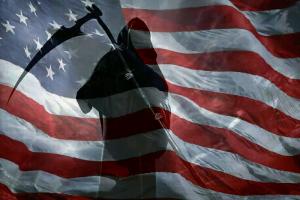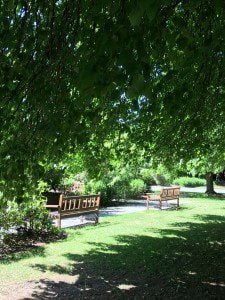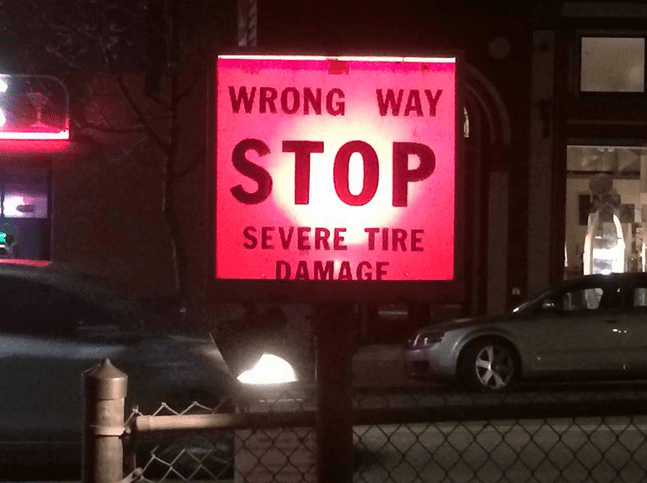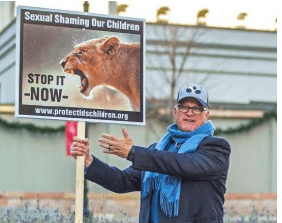 I remember the day I first wrote the word ‘girl’. I was five years old and in Mrs Brunsden’s Primer Two class at Bamford Primary School. Of course I always knew that I was a girl, but there was something in the writing of it that gripped me so much that to this day I can recall the moment with intense clarity. As I made the shape of the letters, I thought, “This is who I am – I am this thing that I write”. There wasn’t a pleasure in it as such, I just remember carefully making the curves and lines and wondering how this thing that I had just brought into creation with my uneasy pencil strokes could come to mean the thing that I was. ‘G-i-r-l’. Even to this day my reaction to the word stirs something in me as if I’m being reborn into the world of meaning that stands beyond my control, but exercises control over me nonetheless.
I remember the day I first wrote the word ‘girl’. I was five years old and in Mrs Brunsden’s Primer Two class at Bamford Primary School. Of course I always knew that I was a girl, but there was something in the writing of it that gripped me so much that to this day I can recall the moment with intense clarity. As I made the shape of the letters, I thought, “This is who I am – I am this thing that I write”. There wasn’t a pleasure in it as such, I just remember carefully making the curves and lines and wondering how this thing that I had just brought into creation with my uneasy pencil strokes could come to mean the thing that I was. ‘G-i-r-l’. Even to this day my reaction to the word stirs something in me as if I’m being reborn into the world of meaning that stands beyond my control, but exercises control over me nonetheless.
Take for instance my surnames. I’ve had an unusual number of them. I was born without the
benefit of my father’s surname and grew up for the first 9 years of my life with my mother’s name – thus I was publicly known for my illegitimacy. She then married, and in a moment of either delusion or stupidity she and my stepfather changed my name by deed poll to his – thus I came to be associated with a drunk ignoramus. I married at 19 and did the good Mormon thing and took my first husband’s name – and came to be known through his adultery as the abandoned spouse. When our marriage ended three years later and tired of having names chosen for me, I went back to my birth name, which I vowed I would keep for the rest of my days. When I remarried, however, despite my protestations and repeated requests to have my church records amended, I have been known in churched spaces by Nathan’s name. More recently, in indigenous spaces, I am frequently identified by my birth father’s name – which is and isn’t a good thing depending on who you talk to. Some people have even laughed at me derisively as if to say, ‘You naughty thing – fancy you doing a silly thing like having so many last names!’ as if I chose this frenetic name changing caper. As if the thing I wanted to do was to bump from one male figure to the next being known variously as the domestic chattels of grandfather, stepfather, husband, grandfather, husband, father!
Other identifiers have been chosen for me. My tribal affiliations for instance have me tied to Porourangi, a preeminent ancestor (male of course), rendering me ‘Ngati (descended from), Porou’. And now my religious ethnicity has me associated with a moment that calls to mind another ancient male whose name has been appropriated to give me an identity. This Mormon Moment, so called, has implicated me in an event that stands beyond my control. I watch it with interest wonderingly as it takes shape, teasing me that despite me, it will change me, impact me, create new spaces for me and make things different for me. I am grateful that out of this moment, a more nuanced identity is being offered up, that stereotypes are being challenged and that historical Mormon identities that have been erased as incidental to the Mormon experience are being called up and resurfaced. But with hands on hips and foot stamping ever so slightly, I have to wonder how long we as non-American Mormons will continue to wear an identity that washes up to us on our shore-lines. How long will we have to pay for the sins of the American church? How long will we have to bear an identity that like a badly designed pair of underpants scoots up our cracks and fissures to our intense discomfit?
Even while I watch with interest the ongoing discussions and debate as a new Mormon identity is being reshaped and worked out in the US I have to wonder what the next tide will bring in? If Romney is elected will we be socially answerable to his politics in the nethermost regions of the globe just because he is a Mormon? If he loses (which he will), will we have to wear the ignominy of failure that will inevitably be attributed (at least partially) to his idiosyncratic American religion?
In a fit a mild pique I’m going to have to part company with the American church on a variety of issues which keep coming up as the story of all Mormons everywhere, because they are not. Let me state for the record that the troubles of Mormonism arise largely out of its host culture, not out of its theology. If you were to place the centre of Mormonism in a different cultural and political context, its colours and hues would be markedly different. This Mormon Moment, above anything else needs to identify where Mormon begins and America ends. Right there, in the mix of culture, nurture, nature, belief, nation and religion is a complex pastiche of conflated meanings that need to be sifted. And just to get the ball rolling, I have a wee list to help us on our way:
- Polygamy: This is an American issue. This wouldn’t have been a possibility in New Zealand because there weren’t enough women here at the time. Māori women are too fierce and no white settler male would have been game enough to suggest it on threat of speedy castration.
- Blacks and the Priesthood: Clearly an American issue all bound up with the slavery dilemma. Māori had a traditional system of slavery, which from all accounts did not preclude the exercise of spiritual gifts.
- Contradictions and whitewashing of early church history: Americans have always loved grand narratives and stories of villains and heroes. One need only watch a Hollywood movie to apprehend this tendency to imagine the world in three acts with dark villains and soaring protagonists. Of course they were going to write the Mormon story in the same vein. If the story had been written in New Zealand it would have been more perfunctory. Besides we hate happy endings here. We have no cultural heroes except those who would be considered villains in the US. We love anti-heroes who stick it to the man.
- Historicity of the Book of Mormon: Americans function best with simple binaries – true/false, left/right, wrong/right, democrat/republican, black/white etc. If this story had come out of New Zealand it wouldn’t even be an issue. Māori have lived with the esoteric presence of the mythical homeland Hawaiki for generations without needing to find it. Americans are always ferreting around in other people’s stories looking for proof of this and that.
- Women and the Priesthood: An American problem based on the sacrosanct June Cleaver persona. The US media has objectified women to the point of domestic and sexual enslavement. One couldn’t possibly have one of those at the pulpit – the blokes might begin to imagine all kinds of naughtiness with her. Out here in the rest of the world, we are used to women as political leaders who run countries, and religious leaders who run churches. In New Zealand women play rugby, tend not to show off their boobs at spring break, and speak in a lower register than American lasses. It wouldn’t be a push to imagine a woman as a bishop! Oh that’s right – we already have one here – Bishop Victoria Matthews whose recent controversial decision not to rebuild the Christchurch Cathedral has been put down to her being Canadian rather than her being a woman.
- Mormon Republicans: Conservatives do status quo the best. In order to prove oneself suitable for statehood they had to ensure they weren’t a threat to the Union. If Mormonism had its genesis in New Zealand, it would have a decidedly left orientation. We would have seen the naughty Nephites and Gadianton Robbers as the English and the Americans, and us as the Anti-Nephi-Lehis – at least we New Zealanders don’t have a strike wing in our air force.
The other day I watched the fabulous Joanna Brookes on the MSNBC Melissa Harris-Perry’s show. It was wonderful – but I have to wonder whether or not those at the media table are missing an opportunity to say ‘American Mormon’ rather than compacting all Mormon experience into one. Imagine for a moment if the phrase ‘American Mormon’ was used to identify the growth of a religion in US spaces. Immediately the onus comes off commentators to speak to the whole religion and immediately America as a nation and a political entity becomes implicated. When Mormonism is understood to be inflected differently across the world, the pressure is on for us to find a commonality over and above the cultures and ideologies of our nation states. In that space alone, I do believe we will find transcendence – which – correct me if I’m wrong –is what this Mormon gig is all about.
One day I would like to be able to write the word M-o-r-m-o-n and feel that it didn’t come from elsewhere. That in its curves and strokes I found myself there, embedded in its contours – not something that was apart from me – something Other creating for me an identity over which I had no control. One day hopefully the girl in me, the Mormon in me, the Christian in me, the socialist in me, the Māori in me, the feminist in me, the academic in me, the mother in me, the rebel in me, the lover in me, the Kiwi in me will all coalesce with all of its shining contrasts. That for me will be the best Mormon Moment.











